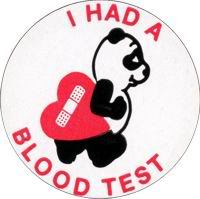Titers and your dog

What are "titers"?
A titer is, very basically, a blood test. What the result of the test tells you is whether or not your pet's blood contains antibodies to certain diseases, as well as the amount of antibodies present. The results of titer tests are usually written as ratios. The ratio signifies how many times your pet's blood could be diluted before the presence of antibodies is no longer obvious. For example, a titer result of 1:2 would mean that your pet's blood was only diluted twice before they could no longer find more antibodies. This signifies low levels of antibodies in the blood. A titer result of 1:1000, on the other hand, would mean that your pet's blood was diluted 1,000 times before they could no longer find antibodies. A result of 1:1,000 would mean that your pet currently has high levels of antibodies in it's blood.
What are titers used for?
Many pet parents are becoming concerned about the dangers of over vaccinating their pets, and rightly so. New research is showing that many dog vaccinations can protect our pets against disease for 7+ years. And yet most veterinarians are still recommending that dogs receive booster shots yearly, despite the fact that they should be well aware of the fact that vaccinations can cause adverse effects - everything from a mild allergic reaction to death. Why should you vaccinate your dog every year when evidence suggests that many of these vaccines are not only potentially dangerous, but unnecessary to give on a yearly bases? For owners who, for whatever reasons, don't want to get their pet(s) vaccinated against certain diseases, titers can be an alternative option.
More and more places these days are beginning to accept titer test results as a replacement for vaccination papers. A strong titer test result is, in fact, usually considered to be a much more accurate indication of disease immunity than just the proof that a dog has been vaccinated. A strong titer test result shows that your dog's body contains the antibodies needed to fight off a certain virus. Proof of vaccination shows only that your dog was vaccinated, and offers no proof that the vaccination actually worked.
Titers can also be used by breeders or owners of young puppies to determine when vaccines are effective in puppies, sparing the puppy from having to receive repeat vaccinations for a disease it already has immunities too. Titers can offer useful information to owners of dogs who may have unknown medical histories. Also, sometimes titer results may help to diagnose dogs who have compromised immune systems. For owners who are worried about whether or not their dog's vaccinations where effective, titer results can offer proof of immunity to the disease in question.
Titer drawbacks
One important drawback to titers is that they are almost always more expensive than vaccinations. Also, the results of the test can be a bit misleading. Just because a dog has low or negative titer results does not necessarily mean that the dog is not protected against disease. It may just mean that the dog has not been exposed to that disease for some time, and so his/her body has not had to produce antibodies. Also, titer testing is usually used to test for virus antibodies, most commonly for diseases such as distemper and parvovirus. Vaccinations for bacterial diseases such as kennel cough and Leptospirosis are not as effective as other vaccinations and usually only offer your dog protection for about a year, so it would normally be pointless to titer for these types of diseases.
Alternative options
Are there any other alternatives for owners who don't want to over vaccinate their pets, but don't want to have to rely on expensive titer tests? In 2003, the American Animal Hospital Association (AAHA) changed their canine vaccination schedule guidelines. These guidelines are continually updated as more and new vaccination research becomes available. Currently AAHA vaccination guidelines recommend that adult dogs receive core virus vaccines only once every 3 years rather than yearly. This vaccination schedule ensures that almost all adult dogs will be protected against diseases such as distemper and parvo, but reduces the number of vaccines given throughout a dog's lifetime.
Owners should discuss their dog's individual vaccine schedule with their vets as well as do their own research to determine what's right for their pet. Things to take into account when trying to determine what vaccines you want your dog to have and how often should include factors such as the safety and amount of protection offered by each vaccine, which diseases are common in your area, and your dog's overall heath.



